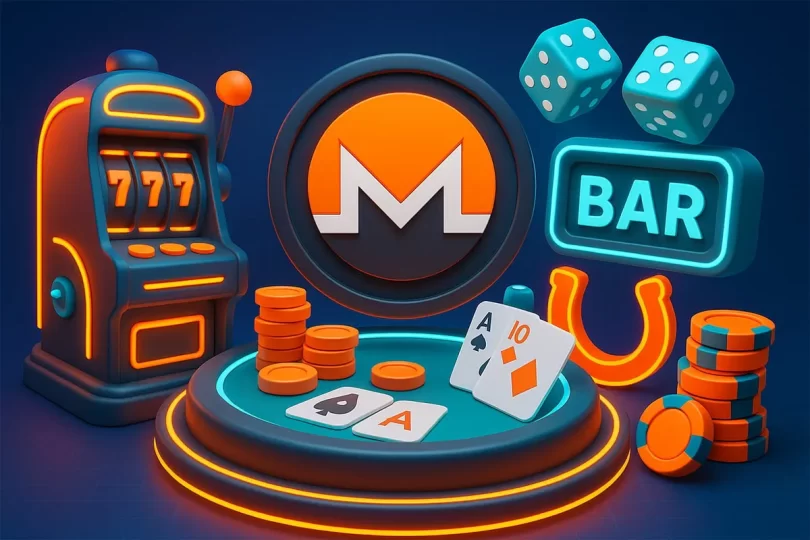In recent weeks, South Africa’s gambling regulator, Izmu, raised the alarm over a surge in “no-KYC” online casinos—platforms allowing betting without verified identity checks. Izmu’s founder, Mduduzi Mbiza, told Mail & Guardian that unregulated anonymous casino sites are not only draining revenue from licensed operators but are also opening the door to fraud, money laundering and exploitation. Mbiza warned these platforms could destabilise the entire industry.
The issue has gone global. Platforms offering “no ID verification” crypto gaming options—like Anon Casino, BC.Game, BetPanda and JACKBIT—are reportedly gaining traction. A recent CryptoNews survey named CoinCasino and BetPanda the top anonymous options, highlighting their ability to process deposits and withdrawals in minutes via cryptocurrencies like Bitcoin, Ethereum, Dogecoin and Monero. A separate report from All iGaming shows that nearly seven out of ten users say privacy has become their top priority when choosing a betting platform, with no-KYC sites now growing 350% faster than traditional rivals. These platforms require only minimal signup—sometimes just an email—while blockchain-based smart contracts manage transactions transparently.
Closer to home, Montana recently passed Senate Bill 555, a sweeping measure making it illegal to operate or advertise online platforms that facilitate anonymous betting. Under the law, which takes effect in October 2025, offenders could face up to ten years in prison and fines topping US $50,000. That move mirrors growing unease among governments worldwide, which are scrambling to balance privacy with consumer protection and anti–money laundering safeguards.
The technical appeal of anonymous casino systems is undeniable: instant payouts, no lengthy KYC processes, and public audit trails on blockchain. Games often offer provably fair algorithms, ensuring outcome integrity. But critics argue the lack of oversight can turn these sites into havens for illicit behavior. Izmu estimated that over US $1 billion per month is wagered on such platforms globally, and that number continues to rise.
Experts caution users to proceed carefully. Many of these crypto casinos operate under long-established offshore jurisdictions, such as Curaçao. Coin Casino, for example, recently rolled out an anonymous registration system that requires only an email and instant crypto withdrawals—without any ID checks. Meanwhile, regulatory bodies in the UK and Australia are reportedly reconsidering how to regulate wallets and anonymous payment flows used in such gaming environments.
Still, the popularity of privacy-first gaming shows no sign of slowing. Cointelegraph’s guide to “best no KYC casinos” praised platforms like CoinCasino, BetPanda and BC.Game for combining speed, game variety and user satisfaction in a relatively unregulated space. Many top-tier platforms now boast thousands of game titles, instant withdrawals, and promotional offers such as free spins and cashback—all balanced against an opaque regulatory backdrop.
There’s also a broader cultural shift at play: users are becoming increasingly uncomfortable with having their personal data collected, stored, and monetised. In tech spaces—from browsers and messaging apps to gaming and betting—privacy is morphing from a niche concern into mainstream demand. Anonymous casino platforms, for better or worse, are emerging as one piece of that larger puzzle.
But regulators are stepping in. South Africa’s example may soon be mirrored elsewhere. In tandem with Montana’s legislation, NSW (Australia) is reportedly in early discussions about preserving anonymous player protections for poker machines, even as officials mull moves toward mandatory account-based gaming systems and reduced operating hours.
These developments raise important questions: how much anonymity should be allowed in gaming? At what point does privacy become a loophole? And can platforms offer both speed and security without compromising compliance?
As the anonymous casino market gains ground, one thing is clear: this is no passing trend. Regulators, consumers and tech providers are all entering a rapid learning curve, testing the boundaries of decentralised systems in real-world applications. For consumers, that means more gambling choices—and complicated questions about safety, legality and digital ethics.
While some users embrace this new frontier, it’s critical that media outlets, regulators and the public pay attention. Anonymous casino platforms may offer greater choice and privacy, but without better regulation and transparency, they also pose risks that could echo far beyond the world of gaming.







